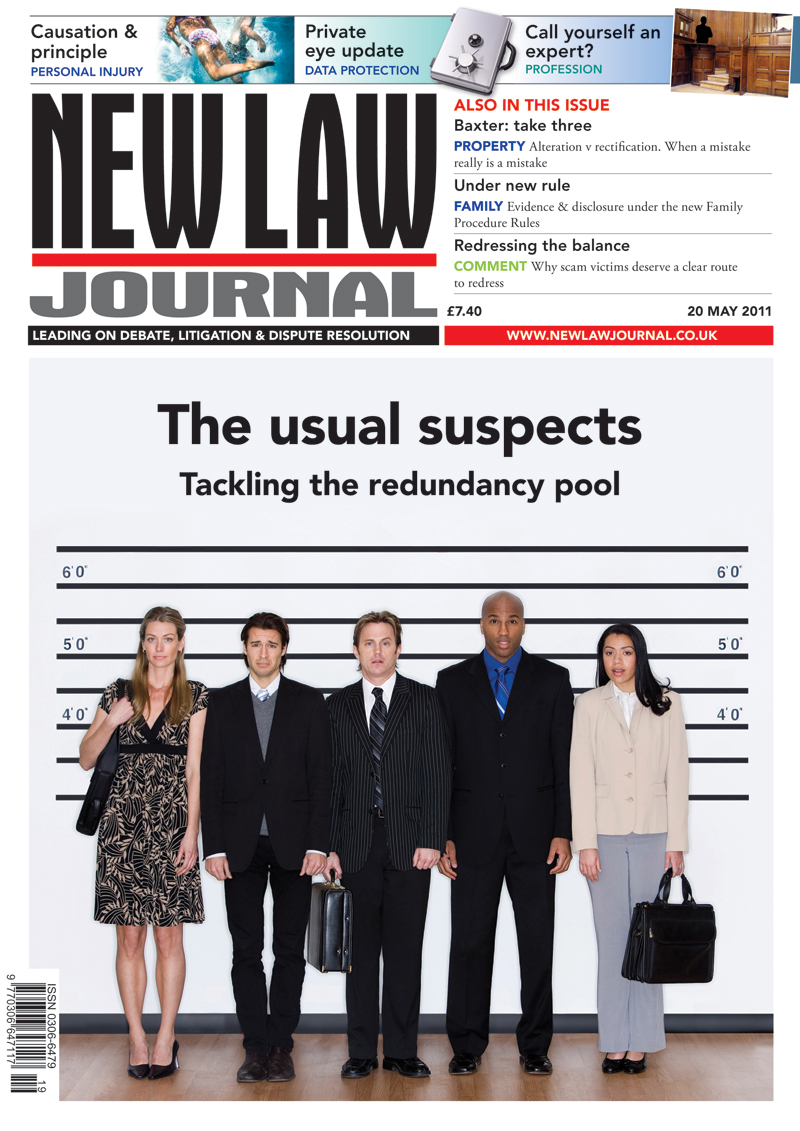
It took the trial judge in Bond v Dunster Properties Ltd and others [2011] EWCA Civ 455, [2011] All ER (D) 248 (Apr)...
John Cooper QC believes advocacy skills are an essential consideration during silk selection
Victims of scams deserve a clear & easy route to redress, says David Hertzell
Ian Smith confronts some familiar HR horrors in the redundancy pool
Tom Morrison kicks off his quarterly review of the world of information law
Helen Wolstenholme reports on the repercussions of accidents at work & in the swimming pool
In his fifth FPR update, David Burrows looks at rules on evidence & disclosure
Alteration v rectification. Joseph Ollech considers when a mistake really is a mistake
Melanie Adams considers how to end an employee’s contract without telling him
ND v KP [2011] EWHC 457 (Fam), [2011] All ER (D) 24 (May)
MOVERS & SHAKERS

Keystone Law—Milena Szuniewicz-Wenzel & Ian Hopkinson
International arbitration team strengthened by double partner hire

Coodes Solicitors—Pam Johns, Rachel Pearce & Bradley Kaine
Firm celebrates trio holding senior regional law society and junior lawyers division roles

Michelman Robinson—Sukhi Kaler
Partner joins commercial and business litigation team in London







